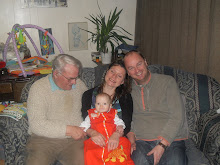Freedom and Responsibility Andrew Bebb
For many years, I have tried to sort out in my mind the precise nature of freedom. It does seem to be important since it is so closely linked to our personal responsibility for all our actions and choices. This in turn has links with the degree of personal guilt so many of us are burdened with.
Some time ago I recall listening to an unusual interview on the radio. The man being interviewed had recently been released from a prison in China. For some years he had been kept in solitary confinement because of his Christian faith and because of his attempts to evangelise
Those were difficult days in the Chinese Republic.
The interviewer asked him how he had managed to maintain his sanity for so long in a cell without a window and with a bare minimum of human contact apart from the warders.
His reply was one, which made me wonder what it is which constitutes our humanity and makes it possible for us to survive within such constraints.
He said that although the conditions under which he was being kept were so utterly restrictive and physically deprived him of any personal control, he decided that he would, by a simple act of his will transform them into an internal act of free choice. He chose to be where he was and internally and freely accepted his condition each morning. So he kept his sanity and perplexed his captors by his cheerfulness.
For myself, this led to some deep thoughts about the nature of freedom.
Freedom cannot really be defined simply by our ability to choose between alternatives. An example of freedom is not typified by a trip around the shelves in a supermarket choosing this brand of cornflakes rather than that. Can a choice be a free choice even when no alternative is actually contemplated? Of course it can.
The Carthusian in his cell in the medieval monastery at Mount Grace in Yorkshire only leaving it to join in communal services in the chapel; the young woman who has had no previous boyfriends yet walks happily to the altar to meet her groom; the old man who throughout a long life has not once set foot outside the village into which he was born. All can live happily and fully and freely in the choice that they had made. Those corrosive words ‘if only’ never entering their heads.
All of this helped me to understand how the God who has given me the sublime gift of freedom; the ability to take possession of my life-choices and be responsible for them, could Himself be free. God is free in His continuing holding of the world in existence. He does so not because He has chosen to do so from a list of possible alternatives, but simply because it was the consequence of His act of deliberate personal love. It is totally and entirely His act. In other words, He is under no constraints internally or externally.
Freedom seems to me to consist in the conscious and willing control I decide to exercise over my decision. This conclusion seems to have some serious implications for the degree of guilt or indeed of praise I might attribute to myself as the agent of an action.
Sometimes each of us can feel depressed and guilt ridden over the decisions, choices and actions that we have made in our past lives. Yet on reflection it may be that we were not completely free in our decisions and actions. It could be that the pressures internally from habits, addictions, mental illness, fear, etc may diminish or even remove responsibility for our actions. External pressures from peer groups or a morbid fear of consequences may limit the degree to which an action is truly our own. I remember our Moral Theology Professor saying with a slight smile that it was considered that getting drunk for the first time could not be a mortal sin since we were unaware of our limits!
How sad it is that often in its history that the simple message of love and forgiveness in the Gospel seems to have been obscured. Some of us may be able to reflect back to those days before Vatican II when serious debates would occur as to whether knitting could be regarded as ‘servile work’ on a Sunday or whether swallowing a little toothpaste accidentally might preclude us from receiving Holy Communion; those days when knowledge of the Catechism seemed to take precedence over its practice; those days when our female sisters were forbidden to enter the Sanctuary during sacred ceremonies for fear of polluting it by their presence.
However those days are thankfully past.
To reflect back on the theme of personal freedom during this period of Lent and Easter, I am sure that the most ultimate example of personal and internal freedom occurred during those last days, which culminated in Jesus stumbling up the hill on His way to his execution. As the soldiers whipped him, mocked him and put a crown of thorns on his head, and finally nailed Him to the scaffold, his submission to their cruel treatment was total. That submission and acceptance he converted into a sublime act of love. In His freedom He gathered together the whole of His life and death into one simple act of personal love:
“Into your hands, I commend my spirit.”
Friday, 25 June 2010
Subscribe to:
Post Comments (Atom)

No comments:
Post a Comment